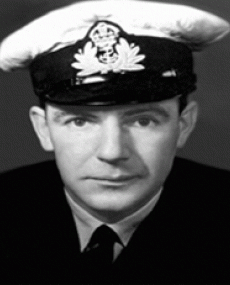
Cecil Williams was born in Cornwall, England in 1906. Williams whose father was a blacksmith left Cornwall for Johannesburg in 1928. After his arrival, he worked as an English school teacher before switching to journalism during Second World War. Williams then worked as a theatre director producing plays using black and white actors and by the 1950’s, he had become a well known figure particularly in Johannesburg where he lived. Amongst his productions is the Kimberley Train (1959) which was an anti apartheid production. With him being gay at a time when homosexuality was considered an illegal lifestyle by the government, he would often get assaulted.
Williams was active member of the Springbok Legion and the War Veterans Action Committee (WVAC) which was formed in April 1951. He initially served as the Legion’s secretary while also serving as an appointed ‘adjunct’ administrative officer of the Steel Commando. In 1952 he was elected as Chairman of the Springbok Legion at its Conference. Williams worked closely with Bram Fischer in bringing together the Legion and the Congress of Democrats (COD). On 28 August 1953 just before the conference where these two organizations would unite, the Legion’s offices were raided by the security police. The Minister of Police ordered Williams together with his colleague Alan Lipman to resign from any organization that they belonged to. In addition they were prohibited from attending any gathering or meeting for 2 years.
After the formation of the COD, Williams served in the first executive committee later serving as its Vice chairman. He later became part of an underground unit that included Norman Levy, Rusty Bernstein, Ruth First and Rica Hodgson. In 1959 Williams was tried for treason but later acquitted. His involvement in activities of the banned South African Communist Party (SACP) and opposition to racism led to his contact with Nelson Mandela. After the banning of the ANC and the formation of MK, Williams became involved in underground work of MK. For instance, when Mandela returned from military training in Addis Ababa, he was met by Williams in Bechuanaland (now Botswana). They continued to work together until 1962 when Mandela was arrested posing as David Motsamayi, a chauffeur for Williams.
The story of how Mandela was caught got much publicity; however, not much was ever published about the man he was driving that day. Though he was involved in the struggle, Williams kept that part of his life separate from his personal life. Consequently, few people knew about his political activities and his lifestyle as a gay person. After the arrest of Mandela, Williams left South Africa for Britain where he lived until his death in 1979.
In 1998 a film about Williams titled ‘The man who drove with Mandela’ was released. The movie is more about the man that Williams was, very little emphasis is made in the film on the Mandela arrest incident despite the title suggesting otherwise.